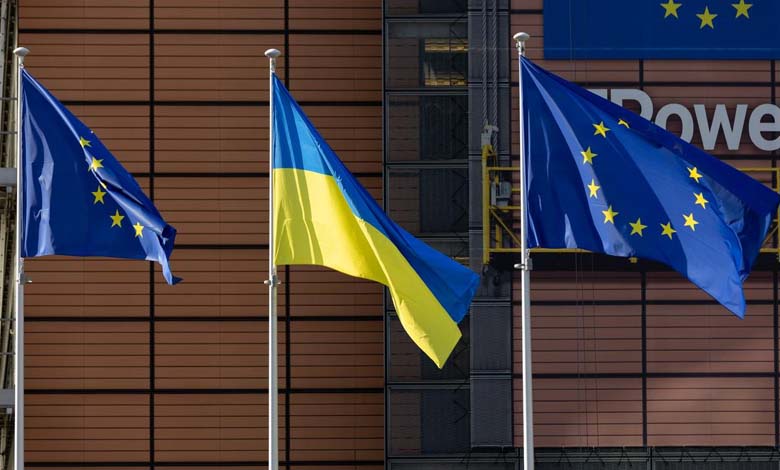Ukraine’s Funding at Risk: Russian Assets Threaten to Divide the European Union

The ongoing war in Ukraine is increasingly straining relations among EU member states, primarily due to financial disagreements. According to Politico, the European Union is stepping up pressure on hesitant governments to approve additional funding for war-torn Ukraine, warning them that if Russia is not forced to pay, the financial burden will fall on Europe itself.
-
Collapse of Armored Forces and Recruitment Crisis: Ukraine Faces Its Gravest Challenge Since the War Began
-
After battlefield stagnation… Ukraine turns to Flamingo and its counterparts
Gradually, European governments and the European Central Bank have begun using confiscated Russian assets to support Ukraine’s defense efforts. Initially, this move was approached with caution, as seizing another nation’s assets—no matter the justification—raised serious legal and ethical concerns. However, Ukraine’s urgent needs and Washington’s hesitant stance have shifted priorities across Europe.
At the latest EU leaders’ summit, Belgian Foreign Minister Bart De Wever refused to endorse the plan, which requires unanimous approval from all 27 member states. His opposition forced Brussels to postpone the decision until at least December. De Wever argued that the European Commission underestimated the legal complexities and the potential consequences for Belgium of using frozen Russian assets.
-
After Gaza… Trump sets the peace compass toward Ukraine and receives Zelensky
-
Kyiv and Eastern Ukraine in Darkness as Zelensky Calls for Decisive Action
Nevertheless, EU officials believe the resistance will not last beyond December, when leaders are set to reconvene. Brussels is betting that Belgium—home to most of the frozen Russian assets—will eventually agree to the plan, particularly with the incentive of a shared borrowing mechanism, long seen as risky.
Several European countries have long opposed the idea of issuing joint European bonds, believing they should not bear responsibility for the debts of other governments seen as fiscally irresponsible. Yet, the EU now faces a double deadline: Ukraine’s funds are expected to run out by the end of March, and decision-making within the bloc is becoming increasingly difficult as Hungary, the Czech Republic, and Slovakia strengthen their anti-Ukraine stance.
-
Russia Accuses Dbeibah’s Government of Supporting Ukraine to Spread Chaos in the African Sahel
-
The Secret of 6 Meters: Ukraine Reveals the Conqueror of the Fronts
In parallel, the EU may launch a broader investigation to locate additional Russian assets held across member states, estimated at €25 billion. Most of these funds are currently managed by Euroclear, a Belgium-based financial institution, exposing Brussels to major financial and legal risks.
A spokesperson for the European Commission stated that intensive discussions were ongoing with Belgian authorities, and that any new proposal would be based on the principle of collective risk-sharing. The Commission maintains that the original approach does not pose new risks, but future proposals must ensure that any legal consequences are collectively borne by all EU members.
-
The Thousand Cuts – Russia’s New Weapon to Wear Down Ukraine as Winter Approaches
-
A Night of Fire: Russia Strikes Ukraine with 500 Drones and 40 Missiles
The Commission also downplayed Belgium’s concerns, insisting that the €140 billion in frozen Russian assets would only be returned if the Kremlin ends the war and compensates Ukraine—an outcome considered highly unlikely. Still, Belgium fears that Moscow could unleash a wave of legal challenges, citing the 1989 bilateral investment treaty between the two countries.












